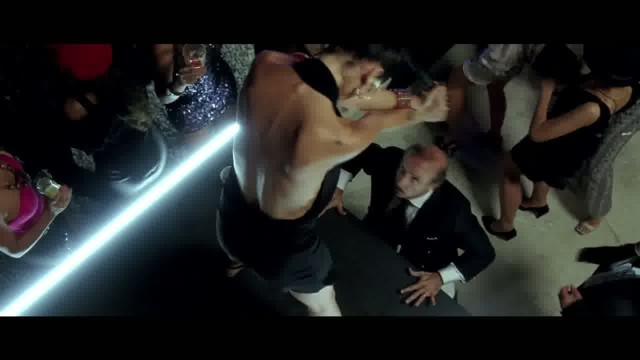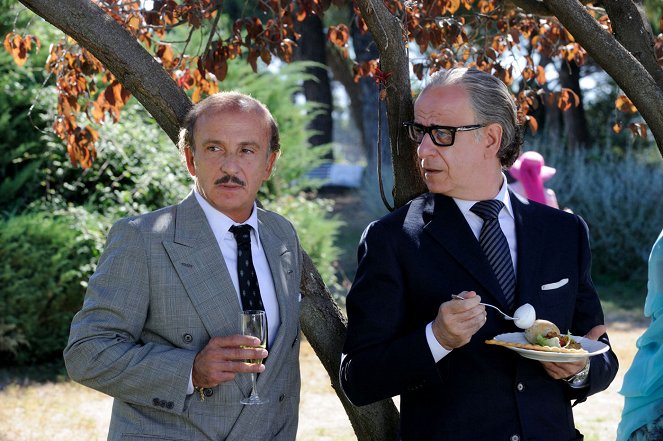Directed by:
Paolo SorrentinoCinematography:
Luca BigazziComposer:
Lele MarchitelliCast:
Toni Servillo, Sabrina Ferilli, Carlo Verdone, Carlo Buccirosso, Isabella Ferrari, Giorgio Pasotti, Franco Graziosi, Serena Grandi, Luca Marinelli (more)VOD (5)
Plots(1)
Jep Gambardella, a 65-year-old journalist and once promising novelist, spends his easy life among Rome's high society in a swirl of rooftop parties and late-night soirees. But when he learns of the death of his friend's wife - a woman he loved as an 18-year-old - his life is thrown into perspective and he begins to see the world through new eyes. (Artificial Eye)
(more)Videos (3)
Reviews (9)
A very interesting film that slightly pretends to be a contemplation on old age, slightly as a glimpse into the realm of the wealthy and their lives, which move at a frantic pace and it doesn't matter how old you are, but it's actually an existential drama about the place of a person in the world. And it doesn't matter who you are, because if you don't realize what you actually want, what you're doing, where you're heading, your life will stop making sense. You won't have a goal. Nevertheless, it is possible to live like this. The film may be a bit too long and in some passages draggy, but especially the first half offers truly unique, original, and definitely unexpected scenes. The scene on the balcony is then almost surreally magical.
()
Crisis as a pose, beauty as the only principle of construction. Sometimes it works wonderfully (the introduction and the conclusion), whilst other times it's empty, ostentatious, unnecessarily eloquent and awkwardly theatrical. Even the biting irony is only about halfway there. Sorrentino is an excellent director, but unlike Fellini's "Roman frescoes", which are internally experienced and in every chord accurate, he realizes the idea of a nostalgic protagonist in crisis much less convincingly, but all the more heinously and loudly. A film that plays at being a classic just like the protagonist plays at being a blessed man of the world. Sorrentino had already made films that are an order of magnitude better, but also less affectionate.
()
Episodes from the life of Roman high society, which in themselves are filmmaking glamor. The Great Beauty is a visual
gem, abstract not only in its image, but also in terms of content. It’s not possible to absorb it all in a single viewing, as
the sheer number of thoughts and reflections requires watching it again. And even if you still don’t absorb them all, you
will remain dazzled by the atmosphere and elegance of the film, touched by the harmony between the camerawork and
editing, which is simply incredible. Paolo Sorrentino is from outer space. The disco party at the beginning of The Great Beauty
beats the entire Great Gatsby.
()
A lot of ideas, a whole bunch of opinions and a brutal deal of philosophizing. And on top of that you get a visual side that will make many an eye melt away. I accept all that, but at the same time it wasn’t an easy movie for me to handle the first time. I will definitely watch it again… someday. But now please give me a moment to fully realize what it was that I actually saw. The Great Beauty is a crazy critique of a society. A critique of fleetingness, arrogance, vanity… and some of the scenes were so crazy I don’t think I will ever get them out of my head.
()
A writer's block, a magical city, beautiful women and a (dis)appetite for a wild social life, or the Fellini of modern times. It's not easy to immediately collect all your thoughts and fully embrace the elaborate metaphorical play in which Sorrentino has wrapped a story about the present-day fate of old age and loneliness, but it's all too easy to like this play and be swept away by it. The charming production design itself, packed with beautiful images, flawlessly composed music and civil dialogues, is a delight to watch, not to mention the perfect actors and the precisely dosed insight that has always belonged to life, and therefore to this film. And it's uncanny how similar the emotions of the film sound compared to the famous 8 1/2, fifty years earlier. People don’t change and Italian filmmakers are proof of that. :) 80%
()



Ads